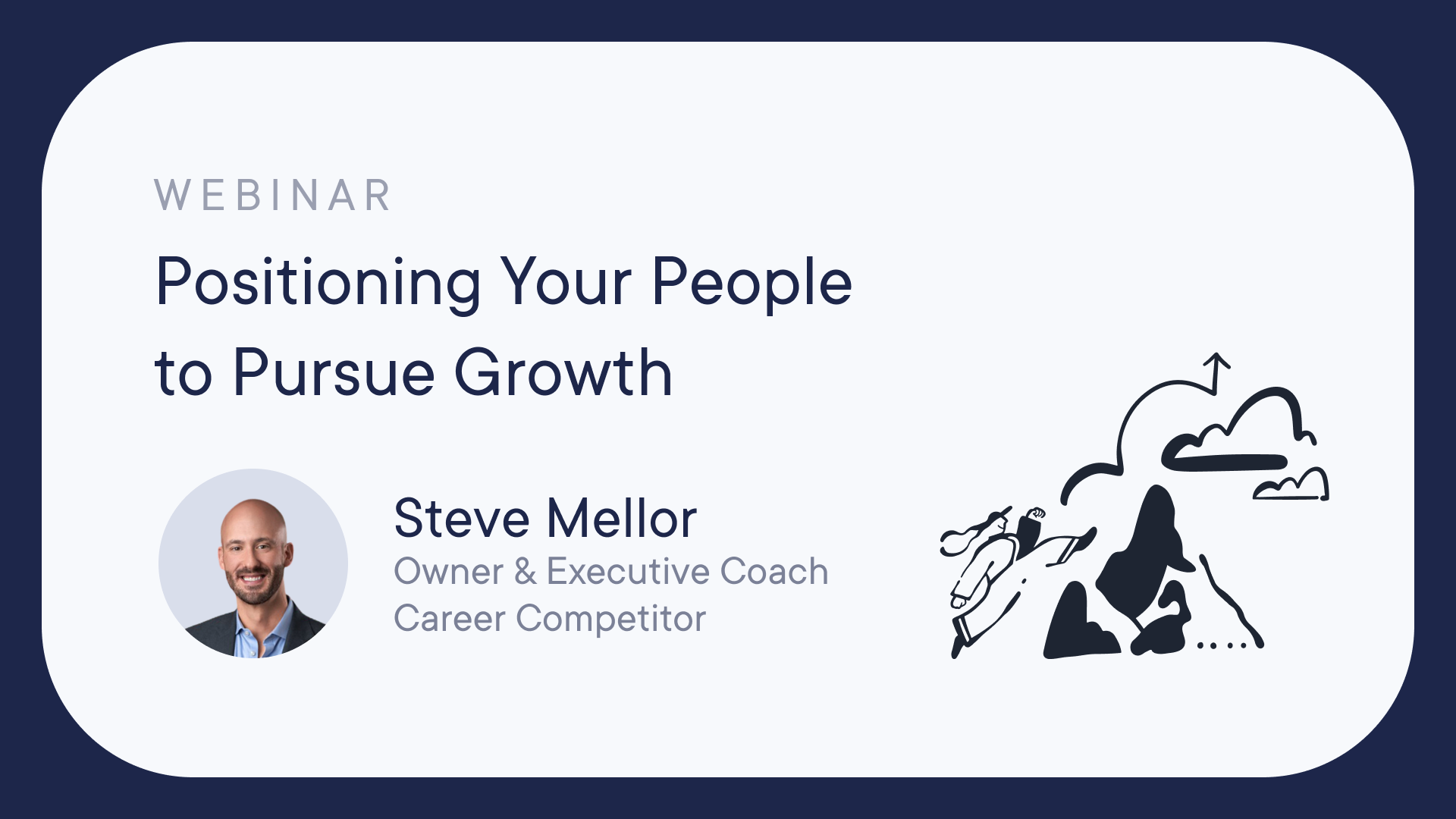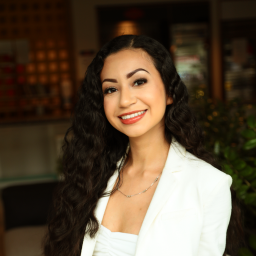
Compare Providers
Download our outplacement comparison sheet
Request Pricing
Compare our rates to other providers
Companies are constantly trying to create growth and scale to new heights. However, any seasoned executive knows desiring growth is not enough; it’s the cultivation of a growth mindset that truly propels individuals and organizations forward. But what exactly is a growth mindset, and how can it be nurtured within the fabric of an organization’s culture?
We sat down with renowned Executive Coach, Steve Mellor to answer a few questions about how to position employees to pursue growth within your organization. With over two decades of experience coaching high performers across diverse fields, including elite athletes, business owners, executives, and emerging leaders, Steve brings a wealth of insight into the transformative power of a growth mindset.
Can you elaborate on what exactly constitutes a “growth mindset” within an organizational context?
Organizations are faced with decisions or opportunities daily where they can easily do as they have always done. Growth mindset insists that all parties within an organization approach these moments with a curiosity toward current or typical responses within a team or organization. When we collectively embody a growth mindset, we choose to challenge what is typical and remain open to new or improved approaches to action.
How can individuals effectively identify and leverage their authentic attributes to foster a growth mindset within themselves and their teams?
It is important to emphasize that authenticity is born out of one’s ability to pursue who one aspires to be. Like a growth mindset, authenticity does not simply reflect how things are, it too insists that we consistently work toward the best version of our truest self. There are some applicable tools for this; however, the simple answer here is that individuals can work on identifying their greatest strengths and find ways to further utilize them, while also identifying areas in their role that do not come easy to them (notice I did not say weaknesses) but that they know can serve the growth of their authentic self.
In what ways does more engaged and respectful communication contribute to laying a foundation for growth within an organization?
If we are not willing to engage with those around us, we are immediately dismissing the very principles of growth. Even if we do not fully understand how to implement and apply a growth mindset, we can at least step into communication with a willingness to listen and give our full attention to those around us. To begin with, we don’t necessarily need to have answers or understand how to provide solutions, we simply need to establish ground rules for how or when we communicate, and practice foundation communication skills such as listening and remaining attentive.
How do you recommend aligning individual aspirations with the overarching mission of the organization to foster a culture of growth?
This will be at the heart of the webinar we’re hosting on May 16th about how individuals can establish alignment with the organization, but it starts by asking the right questions. These questions should resource on how people feel toward the work that will go into pursuing growth, how they might tackle adverse moments in the future, and what their perspective is toward what is realistic and what isn’t. To be clear, these responses will not immediately influence any changes toward organizational goals or vision. This is about better understanding the mindset employees have toward growth and can highlight areas where a growth mindset can be developed.
Could you provide examples of how coaching and workshop facilitation can help individuals and teams invest in their optimal selves for optimal performance?
The key to pursuing your optimal self and achieving optimal performance is receiving support to reveal the personal and collective growth you are otherwise unable to. In its truest form, coaching is an external version of a growth mindset. It is a way to be challenged through curiosity in the form of a coach’s question, but for this curiosity to come from an unbiased and neutral place that can help you see or discover what you are otherwise unable to. Workshops can have a similar role when facilitated by someone with a growth mindset. The key to this is providing the shared space in the workshop that ensures attendees can apply the content specifically to where it can serve them best.
How often should teams be coached in order to make a difference in their performance?
This is a classic case of “it depends”, but I would say there are two questions that directly influence how often a team should invest in coaching. Firstly, how important is the end goal? If there is a goal far off in the distance that means enough to a group, then having a neutral yet challenging voice coming from a place of curiosity can be a weekly influence that the team is desperately in need of. Secondly, how coachable is this team? To be coachable is to be open to remaining in a position of discomfort for extended periods – I’m talking months at a time. Long-term growth will come with long-term discomfort, but discomfort does not mean pain or agony, it just means you won’t be comfortable in pursuit of long-term goals and lasting growth.
How can leaders effectively support and nurture a culture of continuous growth and development within their teams or organizations?
Stay curious. Always! The moment you assume is the moment you step away from curiosity. I watch and meet too many leaders who assume on behalf of their people, and then they wonder why there is a sense of disconnect across many areas of their leadership and organization. If the end goal is to have a culture of continuous growth, the nurturing process for that must always start and end with curiosity toward your people.
Based on your background as an executive coach, what made you passionate about this topic?
I realize my potential by helping others realize theirs, and I happen to believe we were all put on this earth to pursue our optimal selves. I was fortunate to be exposed to the power of a growth mindset early on in my coaching career and have seen the benefits and results that come from challenging people from a position of curiosity while believing in their true potential. Little about this work is pretty. I typically find myself in messy moments with clients, but it is in these moments where you see this work be so impactful in helping people become clear and unstuck and reestablish momentum toward their optimal selves and optimal performance.
Success stories come in the form of my clients and athletes I have worked with over the past 15 years. My first chapter of coaching was as a swim coach where I guided athletes to the height of Olympic Gold, NCAA All-American, and SEC Champions, and I was doing this at a program with limited resources where I had to be creative toward the culture I created in order to make up for where we were at a competitive disadvantage. In the business world today, all of my work is with business owners and executive teams in helping them develop themselves before applying similar work to the culture. My clients have all seen 10-20% revenue increases that stem from the work we are doing by shifting their outlook toward true curiosity while creating the environment necessary for people to challenge one another in a respectful and growth-minded way.
Careerminds Webinar Hosted by Steve Mellor
Careerminds is excited to present a webinar on May 16, 2024 that delves into the heart of this transformative concept, “Positioning Your People to Pursue Growth.”
Inside the webinar we’ll be covering how to:
- Encourage individuals to identify their authentic attributes to build confidence in the impact their truest self can have on future growth.
- Justify why the adverse parts of an individual’s role must be identified and embraced so as to serve future growth.
- Honor the work that goes into forming a foundation for growth through more engaged and respectful communication.
- Center an individual foundation for growth as a means of aligning what people want with the mission of the organization.
Are you ready to cultivate growth mindsets that propels you and your organization toward success? Join us for this enlightening webinar with Steve Mellor on May 16th, and take the first step towards unlocking your organization’s true potential.
Space is limited, so make sure to secure your spot today. You can register via the link below. We can’t wait to see you there!
In need of outplacement assistance?
At Careerminds, we care about people first. That’s why we offer personalized talent management solutions for every level at lower costs, globally.




